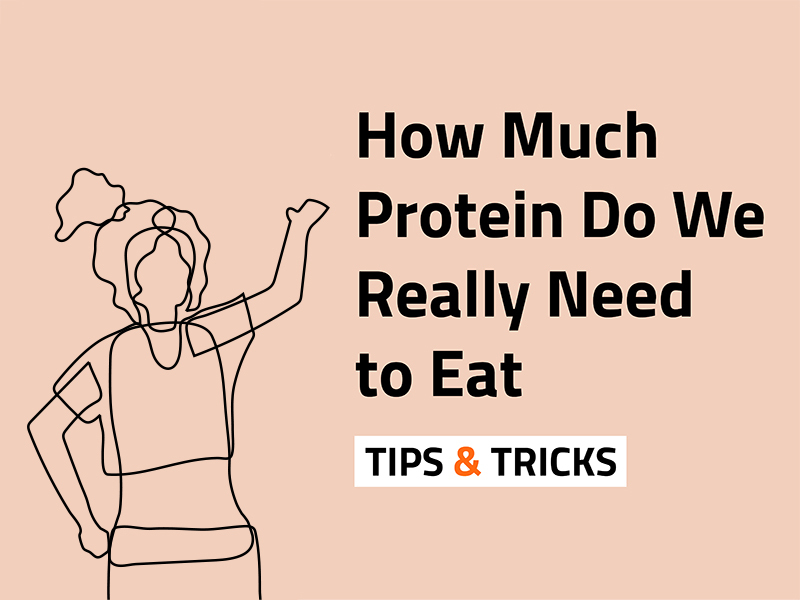The recommended daily allowance of protein intake for healthy adults is set at around 0.8 g of high-quality protein per kg of body mass in the United States, Great Britain, and Europe. This amount of protein is estimated to be sufficient to meet the needs of nearly all (97.5%) healthy men and women aged 19 years and older. But once you start reading nutrition recommendations, other figures come into play. They range from 1.2-1.8 g/kg for sedentary and overweight individuals to 1.6-2.4 g/kg for people with healthy weight wishing to lose or maintain their weight. The recommendations go as high as 3.3-4 g/kg of protein for people engaged in weight lifting, bodybuilding, and resistance training.
Why do we see such a big difference? The current recommendation for a protein meal of 0.8 g/kg is based on isolated protein sources rather than protein-rich whole foods. But unless they are professional athletes or bodybuilders, people eat whole food sources of dietary protein rather than pure protein. These proteins differ in quality because they contain different amounts of indispensable amino acids and these amino acids are digested differently, and there is a special score (DIASS) assigned to them. The animal proteins (such as milk, eggs and poultry) have a higher DIASS than plant-based proteins in cereals, nuts, and legumes. Depending on the amount of animal- and plant-based protein in the diet, a diet may require anywhere between 1.2 and 1.8 g/kg of protein to actually achieve the recommended 0.8 g of pure protein per kg threshold.
Endurance and strength/power exercise increase the oxidation of branched chain amino acids, which creates the need for protein intake in athletes. A greater protein intake is also required to increase energy use or stimulate more muscle protein synthesis (MPS) after exercise. Thus, strength/power exercise can increase protein requirements even more than endurance exercise, especially in the early stages of training and/or when volume increases dramatically. Therefore, the optimal amount of protein in athletes’ diet is defined as the amount at which MPS is maximally stimulated with a minimum rate of amino acid oxidation. Conversely, an excessive amount of protein in a meal is defined as the point where amino acids show an exponential increase in oxidation rates and MPS is no longer stimulated in response to increasing amounts of ingested protein. An excessive amount of protein in the diet can displace other nutrients and lead to several macro- and micronutrient deficiencies. So, an overall daily protein intake for building muscle mass and for maintaining muscle mass through a positive muscle protein balance, should be in the range of 1.4–2.4 g protein/kg body weight with the optimal protein per serving intake of 0.25 g of high-quality protein per kg of body weight, or an absolute dose of 20–40 g. To minimise lean-mass loss, resistance-trained athletes on a low calorie diet can increase protein intake to 2.3–3.1 g/kg.
However, the problem with any recommendation (even the one given on the basis of clinical studies) is that it is given for some average person that may have very little in common with you, your overall health, your fitness/health goals, and circumstances (including whether you follow a vegetarian/vegan diet). Moreover, no recommendation should be set in stone, as your body’s protein requirements will be different at different ages and stages of your healthy lifestyle journey.
